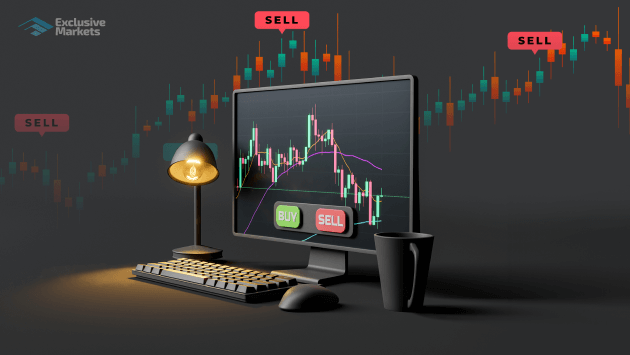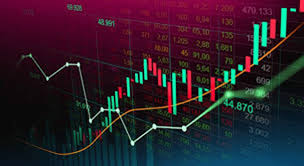
Unlocking Success in Forex Currency Trading: The Role of Brokers
Forex trading has gained immense popularity, drawing in traders from all walks of life looking to profit from fluctuating currency values. Choosing the right forex broker is pivotal for both novice and experienced traders seeking to navigate the complex landscape of foreign exchange markets. One such resource for traders is forex currency trading broker protradinguae.com, which provides insights and tools to enhance trading efficacy.
Understanding Forex Currency Trading
At its core, Forex trading involves the exchange of one currency for another, with the aim of profiting from changes in exchange rates. The Forex market is the largest financial market globally, operating 24 hours a day, 5 days a week. Factors influencing currency values include economic indicators, geopolitical events, and market sentiment, making it essential for traders to stay informed. The complexity of the market underscored the need for robust support systems, primarily provided by forex brokers.
The Function of Forex Brokers
Forex brokers serve as intermediaries between retail traders and the interbank market. They enable traders to access the market, providing platforms for executing trades and offering various tools for analysis. Brokers typically operate under different models, including market makers, ECN (Electronic Communication Network) brokers, and STP (Straight Through Processing) brokers. Each model offers unique advantages and caters to different trading strategies.
Types of Forex Brokers
Choosing the right type of broker is crucial, as it impacts trading conditions and costs. Here’s a detailed look at the three primary types of forex brokers:
- Market Makers: These brokers create their own market for currency pairs and often take the opposite side of a trader’s position. They provide fixed spreads and may allow for larger leverage ratios.
- ECN Brokers: ECN brokers connect traders directly to the interbank market, providing more transparency. Spreads can be variable depending on market conditions, and they typically charge commissions on trades.
- STP Brokers: STP brokers automatically route orders to liquidity providers, combining features of both market makers and ECN. They can provide competitive spreads with minimal delays in order execution.

Key Features to Look for in a Forex Broker
Finding the right broker can be daunting, especially with numerous options available. Here are some essential features to consider when selecting a forex broker:
1. Regulation and Trustworthiness
Regulatory oversight is crucial in ensuring that your broker operates under strict guidelines designed to protect traders. Look for brokers regulated by reputable agencies such as the FCA (Financial Conduct Authority) in the UK, ASIC (Australian Securities and Investments Commission), or CySEC (Cyprus Securities and Exchange Commission).
2. Trading Platforms
The trading platform is your primary interface for trading and analyzing the market. Popular platforms such as MetaTrader 4 and MetaTrader 5 offer diverse tools and features, including technical analysis, automated trading capabilities, and social trading.
3. Spreads and Commissions
Different brokers have varying pricing structures. Understanding the difference between fixed and variable spreads, as well as any commissions charged per trade, will help you gauge the broker’s overall costs. Low-cost trading is ideal for frequent traders, while others might prioritize additional services over cost.
4. Customer Support
Solid customer support can make a significant difference, especially for beginners encountering issues. Check the availability of support channels, such as live chat, email, and phone, as well as the responsiveness of the support staff.

5. Educational Resources
Many brokers provide educational materials to help improve trading skills. This could include webinars, tutorials, and articles explaining trading strategies, market analysis, and risk management.
The Importance of a Demo Account
For novice traders, a demo account serves as an invaluable tool for learning the ropes of trading without risk. Most brokers offer demo accounts that mimic real account conditions, enabling you to practice trading strategies and familiarize yourself with the trading platform. Take full advantage of this feature before committing real funds.
Risk Management in Forex Trading
Forex trading involves inherent risks, and effective risk management is vital for sustaining your trading journey. Here are a few strategies to help manage risk:
- Setting Stop-Loss Orders: This tool automatically closes your position when the market reaches a certain price, limiting potential losses.
- Diversifying Your Portfolio: Don’t put all your investments into one currency pair. Spread your investments across multiple pairs to mitigate risk.
- Using Proper Position Sizing: Determine how much of your trading capital to risk on each trade. A common rule is to risk no more than 1-2% of your capital on a single trade.
The Future of Forex Trading
The Forex market is continuously evolving with advancements in technology, including algorithmic trading and AI integration. As brokers adapt to these changes, traders must remain agile and update their strategies to maintain an edge in this competitive landscape.
Conclusion
Choosing the right forex broker is a fundamental step toward achieving success in currency trading. By understanding the types of brokers, their offerings, and essential features, traders can navigate their options effectively. Moreover, incorporating sound risk management strategies and utilizing available resources such as demo accounts will further enhance trading proficiency. Be sure to do thorough research and stay informed as you embark on your forex trading journey.

